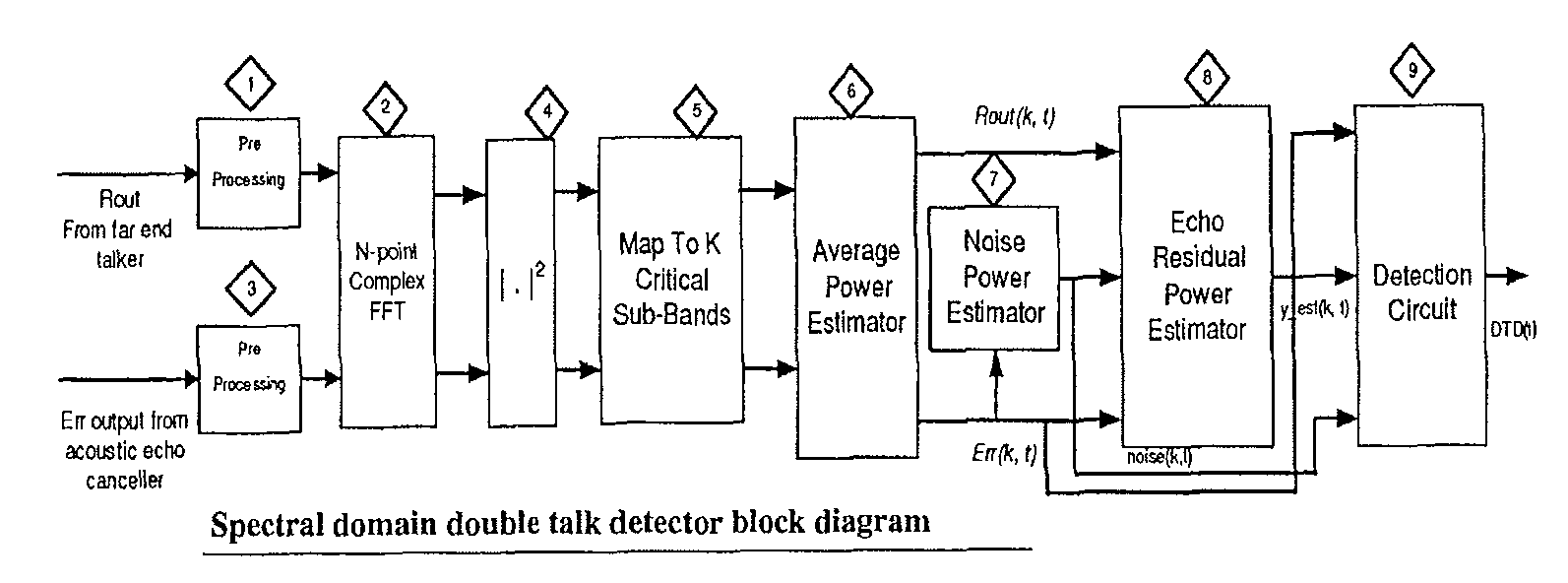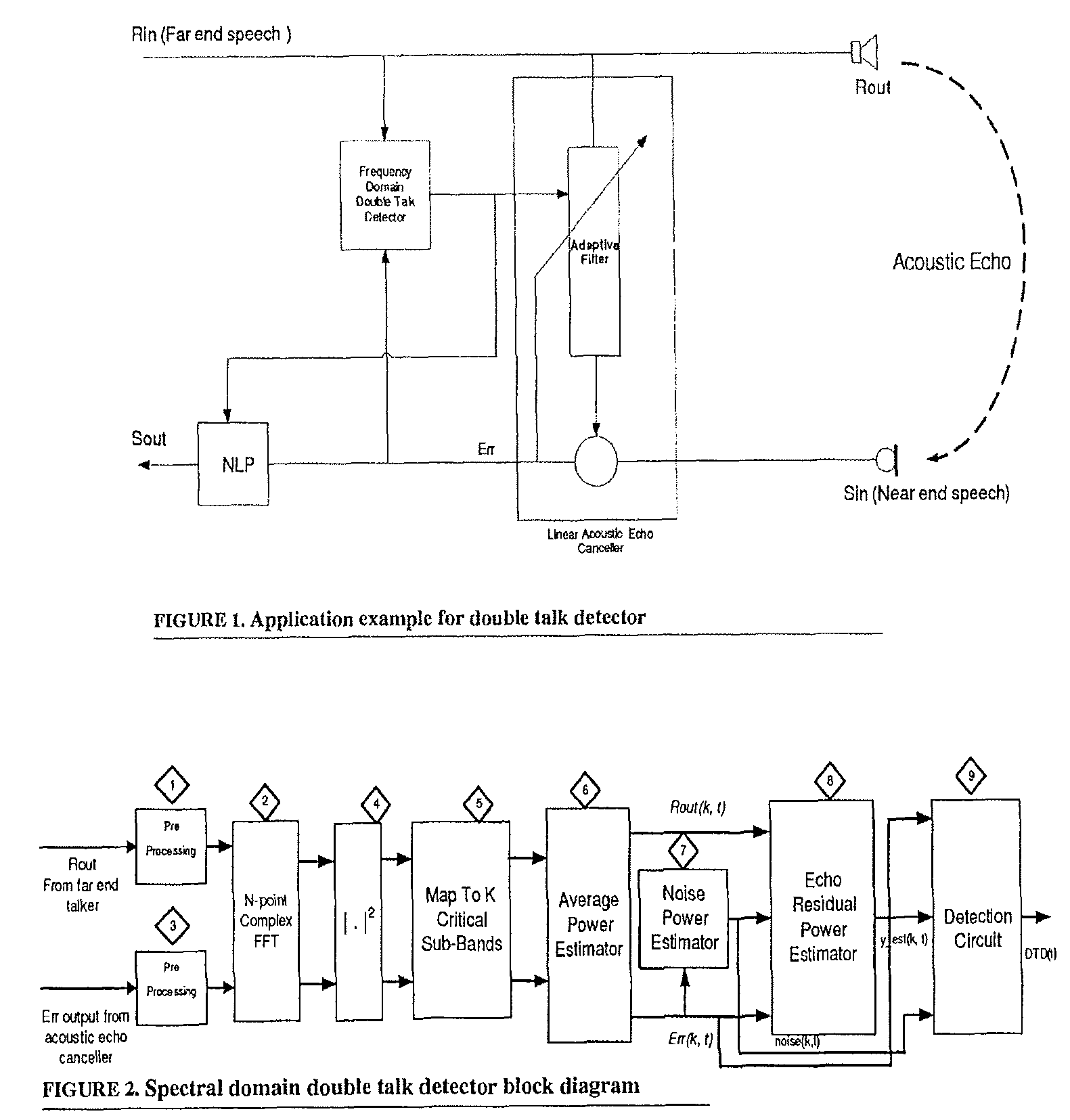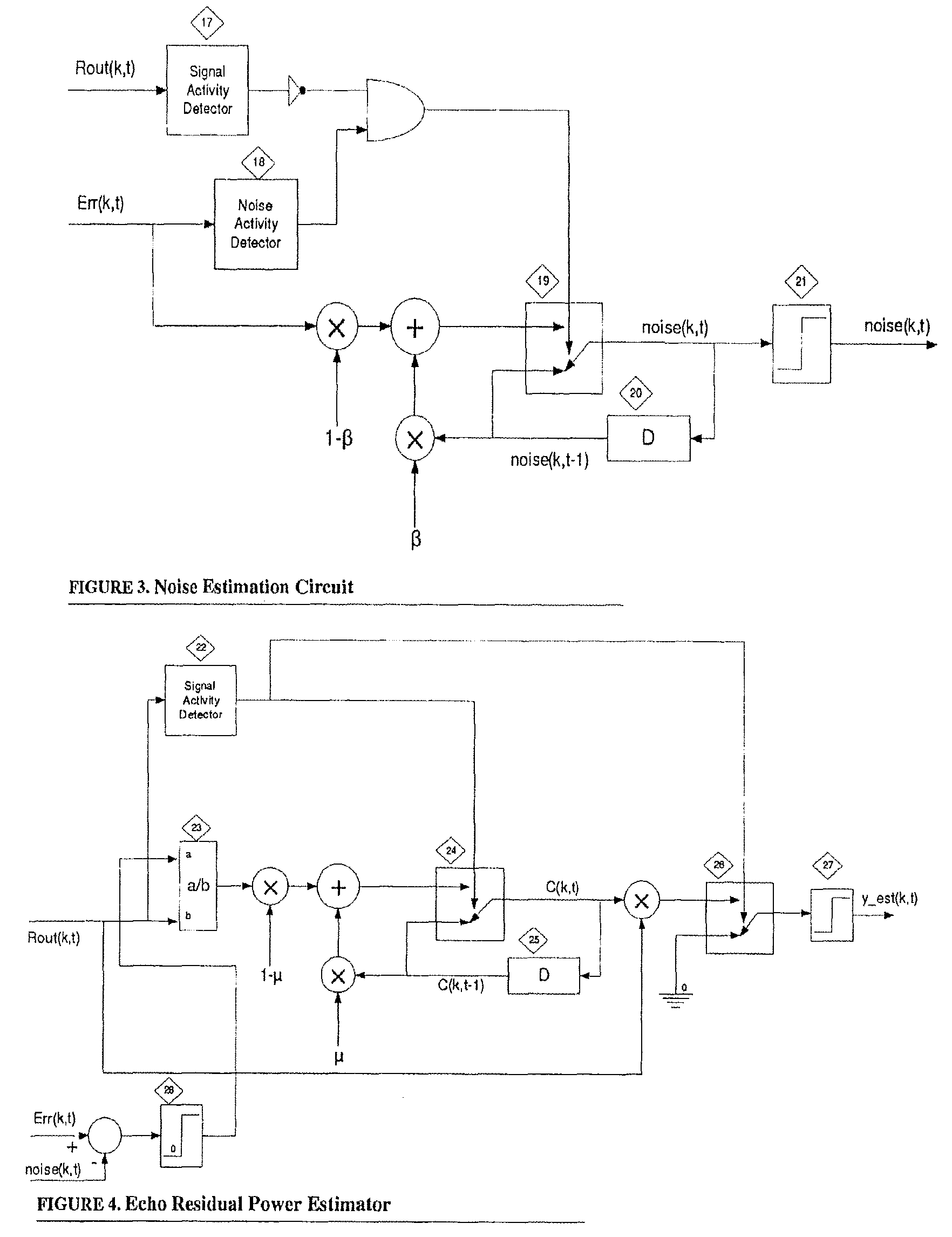Double talk detection method based on spectral acoustic properties
a detection method and acoustic property technology, applied in the field of hands-free telephony communication, can solve the problems of inability to accurately estimate acoustic echo, main source of distortion in hands-free telephony system, and the performance of linear adaptive echo cancelers will be even more limited, so as to achieve robust double talk performance and reduce sensitivity
- Summary
- Abstract
- Description
- Claims
- Application Information
AI Technical Summary
Benefits of technology
Problems solved by technology
Method used
Image
Examples
Embodiment Construction
[0030]Referring to FIG. 1, there is illustrated an application of a double talk detector for acoustic echo cancellation in accordance with the teachings of this invention. As can be seen, the detector and method in accordance with the teachings of this invention can be used as an additional circuit between a linear echo canceler and a non-linear process device (NLP) to provide a more accurate detection of double talk. In a broad sense, there are two signals input into the detector. The signals are Err from a far-end talker and Rout from the output from an echo canceler. K spectral subbands are then created for each input signal. The spectral echo residual power is estimated at each subband and the estimated spectral echo residual and the output signal from the echo canceler for a selected subband are compared to a predetermined threshold. Based on this comparison, the detector determines whether double talk conditions exist.
[0031]FIG. 2 is a block diagram illustrating a preferred sp...
PUM
 Login to View More
Login to View More Abstract
Description
Claims
Application Information
 Login to View More
Login to View More - R&D
- Intellectual Property
- Life Sciences
- Materials
- Tech Scout
- Unparalleled Data Quality
- Higher Quality Content
- 60% Fewer Hallucinations
Browse by: Latest US Patents, China's latest patents, Technical Efficacy Thesaurus, Application Domain, Technology Topic, Popular Technical Reports.
© 2025 PatSnap. All rights reserved.Legal|Privacy policy|Modern Slavery Act Transparency Statement|Sitemap|About US| Contact US: help@patsnap.com



